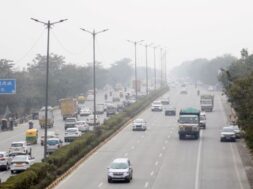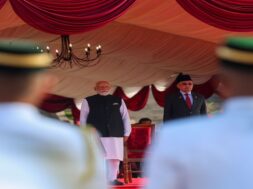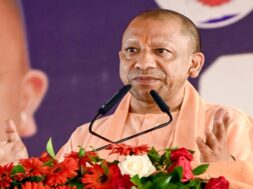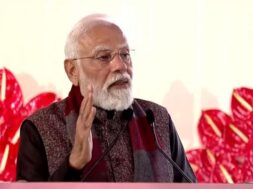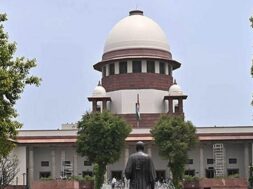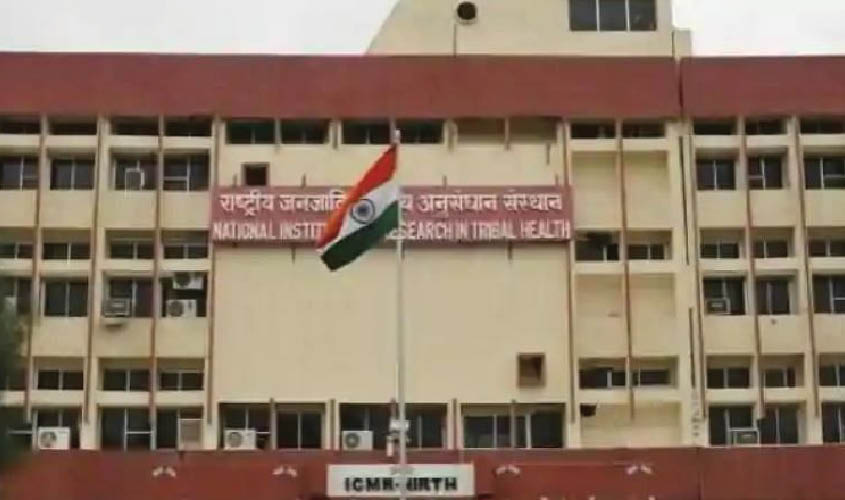
Manas Dasgupta
NEW DELHI, June 26: Even as India for the first time during the current wave reported less than 50,000 daily new cases on Saturday, a team of scientists in a message of great relief to the apprehensive and anxious citizens said a potential third wave of Covid infections seems unlikely to be as severe as the second wave.
The conclusion was arrived at in a modelling study by a team of scientists from the Indian Council of Medical Research (ICMR) and the Imperial College London, United Kingdom. Rapid scale-up of vaccination efforts, says the study, could play an important role in mitigating the present and future waves of the disease.
India’s first wave of SARSCoV-2 infection began in late January 2020 with a peak attained in mid-September. This phase was relatively mild compared to the second wave that followed, from mid-February 2021 onwards, exhibiting a more explosive spread across the country.
A major factor driving this second wave is the emergence of more-infectious variants of SARS-CoV-2, principally B.1.1.7 (Alpha variant) and B.1.617.2 (Delta variant), of which the latter has played a dominant role in recent months.
Third waves have emerged in other countries – like the UK and the USA – and are driven by a range of factors, says the study.
The results suggest that a third wave, if it should occur, is unlikely to be as severe as the second wave, given the extent of spread that has already taken place in India, it added.
“Consequently, for a virus to cause a major third wave in the face of this pre-existing immunity, extreme scenarios for the abrogation of that immunity are required, or for that matter, for the transmission fitness of any novel virus,” says the article in the Indian Journal of Medical Research.
AIIMS chief Dr Randeep Guleria has also said similar things to a section of the media on Saturday.
“Currently data does not support the circulating strain is causing more severe disease – in terms of more deaths or hospitalisation. Secondly, we have a large number of people who already got the infection… so there is some degree of immunity, and vaccine is also being rolled out. So, my own feeling is that the subsequent waves won’t be as bad,” he said.
For the wave to be as devastating, at least 30 per cent of the population who had been infected earlier must entirely lose their immunity, or an emerging variant of the virus must have a reproductive rate (R) over 4.5, that is, each infected person should be spreading to at least 4-5 others and these must occur almost immediately after the second wave ends, according to the study.
The emergence of a third wave in India could be substantially mitigated by the expansion of vaccination, says the study, adding the rollout of vaccine should be in such a way as to cover 40 per cent of the population with two doses over a period of three months following the end of the second wave, which is on the decline currently.
Crowding, use of mask and physical distancing during social interactions are all key factors shaping transmission rate and therefore population-level spread, the study cautions.
“Lockdown-release mechanisms could be a plausible driver for a third wave in India, depending on how effectively lockdowns have controlled transmission during the second wave particularly when instated at an early stage of the second wave and prior to attainment of peak,” says the study.
The analysis, says scientists, is intended to be illustrative and not predictive.
“In the present approach, we considered essentially a uniform waning rate over the spectrum of severity. Second, the basic reproduction number (equivalently, the rate-of-transmission) was assumed to remain constant during each wave,” said the scientists explaining the methodology used in the study.
Meanwhile, the ICMR also said India has achieved the milestone of conducting 40 crores tests with an average of more than 18 lakh tests per day in the month of June. India has tested 40,18,11,892 samples across the country till Friday, it said.
India reported 48,698 new Covid-19 cases and 1,183 deaths on Saturday, according to data from the Union Health Ministry.
The total number of cases in the country now stood at 3,01,83,143 while the overall death toll has touched 3,94,493. There are 5,95,565 active cases in the country at present while as many as 2,91,93,085 people have recovered from the disease, the ministry said.
The health ministry had also said the highly transmissible Delta variant was present in at least 174 districts of the country — and its sub-lineage Delta Plus has been detected in 48 samples in 10 states. The Delta variant was a major contributor to the second wave of infections that peaked in April-May, the government said. Data released by the Ministry showed that the variant was present in 52 districts across the country in March, and had spread to 174 districts by June.
The ICMR chief Dr Balram Bhargava warned that even though more than 500 districts were now reporting less than five per cent test positivity, the second wave of the epidemic should not be assumed to have ended and the people must not drop guards.


